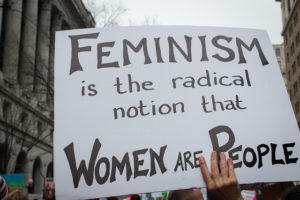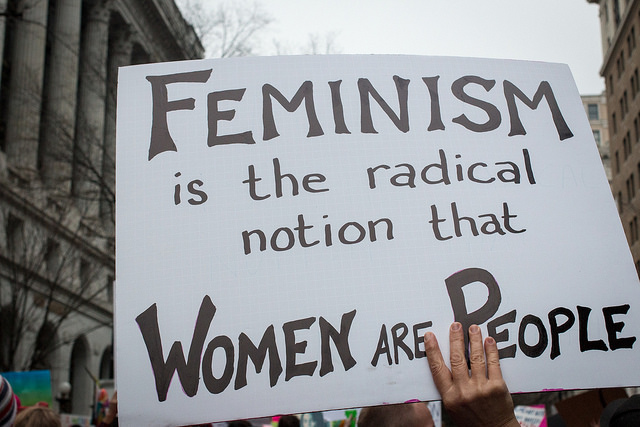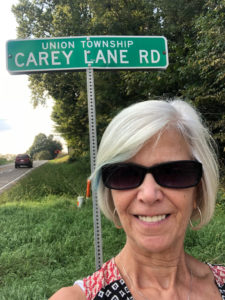 One of my favorite poets died recently — Mary Oliver. At the end of her poem “Summer Day” she challenges me, “Tell me, what is it you plan to do with your one wild and precious life?”
One of my favorite poets died recently — Mary Oliver. At the end of her poem “Summer Day” she challenges me, “Tell me, what is it you plan to do with your one wild and precious life?”
I ask myself that nearly every day. At 60, I’ve had many experiences — wonderful, frightening, dull, challenging, mournful, joyous, and plain old everyday experiences. Taken together, they remind me to make meaningful choices about my ‘wild and precious’ life.
And so, I march.
Years ago, I was on the Mall in Washington, DC showing my support for pro-choice policies. I’ve been in downtown Columbus, Ohio supporting LGBTQI family and friends. I’ve marched for our rights as women, for gun control, and to welcome new Americans in our communities.
The divisive election season of 2016 called out to many people, women in particular, and marches became one form of social protest. Clouds and chilly temperatures greeted me for my first Women’s March in Greensboro the next year. We moved past the old Woolworth’s where the Greensboro Four took their seats beginning the sit-in movement that led to desegregating lunch counters, schools, businesses. At Lebauer park, power warmed me as I saw women (and men and children) cheer the speakers’ new ideas and promises of better times. It was hopeful, happy, harmonious.
Music and balloons filled the air in Winston, at the second Women’s March in 2018 on a sunny, almost picnic weather day. Families brought children – tiny ones in strollers and little girls held signs for their presidency in 2030 — to see the power of peaceful protest. Old and young slowly headed out of Corpening Plaza to march the streets of Winston-Salem. After the march, I stopped for coffee at a local bakery a few blocks from the march and was surprised to see it filled with young people too busy with papers or exams to take to the streets.
Snow was predicted for the Women’s March in Washington this year. So was conflict. Not from outside agitators, but from within the march organization. I worried that the movement might implode, yet more than 350 sister marches were held nationwide (and across the world) including the one I attended in the Queen City.
In Charlotte, this year we marched along with other children of God’s colorful rainbow (and quite a few dogs – one wearing a banner proclaiming his feminist views!) We made the trip from the speaker’s rally at First Ward Park through the city center streets while chants of “This is What Democracy Looks Like” floated up into the sunny skies, met with no resistance, and settled on the shoulders of the marchers.
Someone asked me why I marched, what good could it possibly do? A march won’t open the federal government, end a humanitarian crisis, get drugs off the streets, pay teachers what they are worth …
No, by itself, a march won’t do that.
But a march is one way citizens can have a voice in political life. A march says that people care beyond their small daily space. They care about others, about their community, and about the future.
I march because I believe.
I believe that good public education can exist for everyone, regardless where they live.
I believe that no government can legislate my body.
I believe that hard-working Americans should live without the fear of becoming penniless.
I march because I trust.
I trust that when I elect a neighbor to public office that they will be honest and fair.
I trust American citizens to respect that government service is more than a 9-5 job.
I trust all of us to hold our elected representatives accountable.
But most importantly, I think, I march because I hope.
I hope for less poverty and more equitable wealth distribution. That all can play on leveled fields.
I hope for a working wage that cancels out hunger.
I hope that we take climate change as seriously as we take the Super Bowl and invest as much money in clean air and water as we invest in game day snacks.
Underneath all these lofty hopes and beliefs lies the central truth. I march for me.
I march in the face of injustice. I march to remember that I live free. I march to remember a simple lesson from my mother. There’s always someone better off than you and always someone worse off than you. The better off people can take care of themselves. It’s the other folks who need your help.
Kate M. Carey lives and writes in Lexington, NC while counting the days until she can retire to the beach.


There are no comments
Add yours